Why is my bamboo turning yellow? 6 common reasons and how to fix them, according to gardening experts
It's not just because of ageing
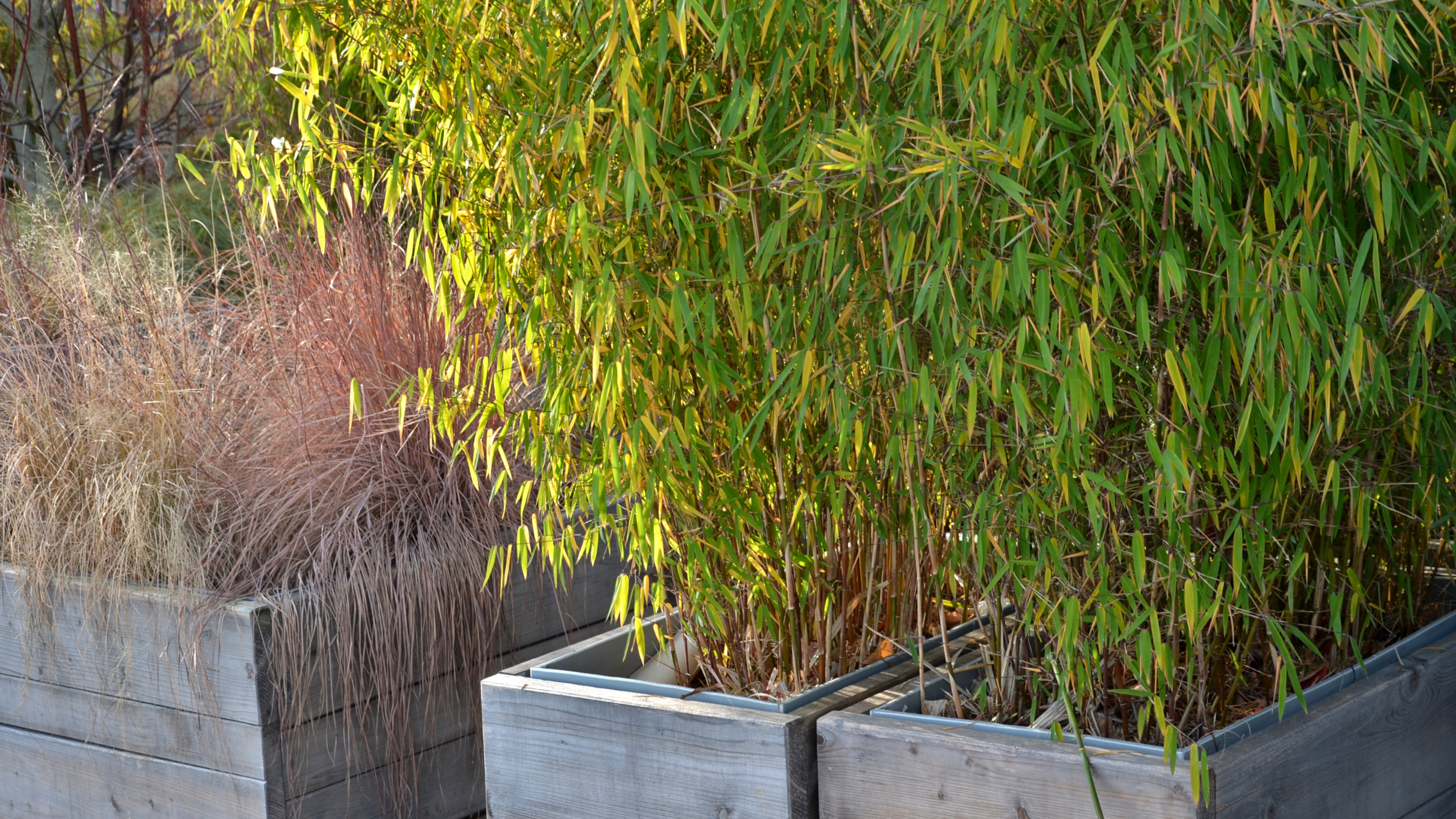

Although bamboo might seem like a rogue choice for UK gardens, it's a beautiful and severely underrated addition to your outdoor space if you're after privacy and a soothing garden. However, if there's one thing that'll ruin the vibe of your carefully curated landscape, it's failing to understand why your bamboo is turning yellow.
Bamboo is one of the best fast-growing privacy trees to consider if you want to create an outdoor sanctuary free from neighbours' prying eyes or simply grow indoors as a fast-growing houseplant to add a touch of zen to your space.
If you've tried your hand at growing it at home, then you'll know that considering how fast bamboo grows, it requires a little more TLC than other evergreen plants. So, learning why your bamboo is turning yellow and how to fix it it is essential to bamboo maintenance.
This is exactly why we've asked the experts to advise us on their best tips for rescuing a yellowing bamboo plant, and how to prevent it from happening again in the future.

Why is my bamboo turning yellow?
'Understanding why a bamboo plant might be turning yellow will not always be easy and you should also keep in mind that sometimes it's natural for a few of the bamboo’s leaves to turn yellow because the plant is naturally ageing,' begins Petar Ivanov, Fantastic Gardeners' plant and gardening expert.
Aside from this, there are a number of reasons why your bamboo is turning yellow, but a lot of the factors all circle back to the way you care and tend to this natural garden screening idea.

Petar Ivanov is a gardening and plant expert who has been working at Fantastic Gardeners for 8 years. As one of the company's top-performing experts, he now manages over 6 teams of gardeners, delivering stunning landscape results and fostering a deep connection with nature through his work.
1. Overwatering
If you're making the garden watering mistake of watering bamboo too often, this could be the biggest reason it's turning yellow.
'Bamboo prefers moist soil, although not waterlogged soil. It can be easy to accidentally water a bamboo plant too much, so just make sure to only water when the top layer of soil feels dry, and try to keep it moist but not wet all the time,' advises John Clifford, garden expert at Gardenstone. 'Overwatering can be a problem as it causes root rot, which will result in the plant being unable to take up water and nutrients effectively.'
However, if you're someone who has chosen to grow bamboo with pebbles and water instead of soil, John recommends simply changing the water once every week to prevent issues.

John Clifford is director of Gardenstone, a leading garden landscaping retailer based in the UK. With over 30 years in the gardening industry and continual work alongside The National Trust, John has amassed an extensive range of gardening and planting knowledge. Alongside his younger son, John has built a strong reputation for Gardenstone as a trusted source for both high-quality garden products and expert gardening advice.
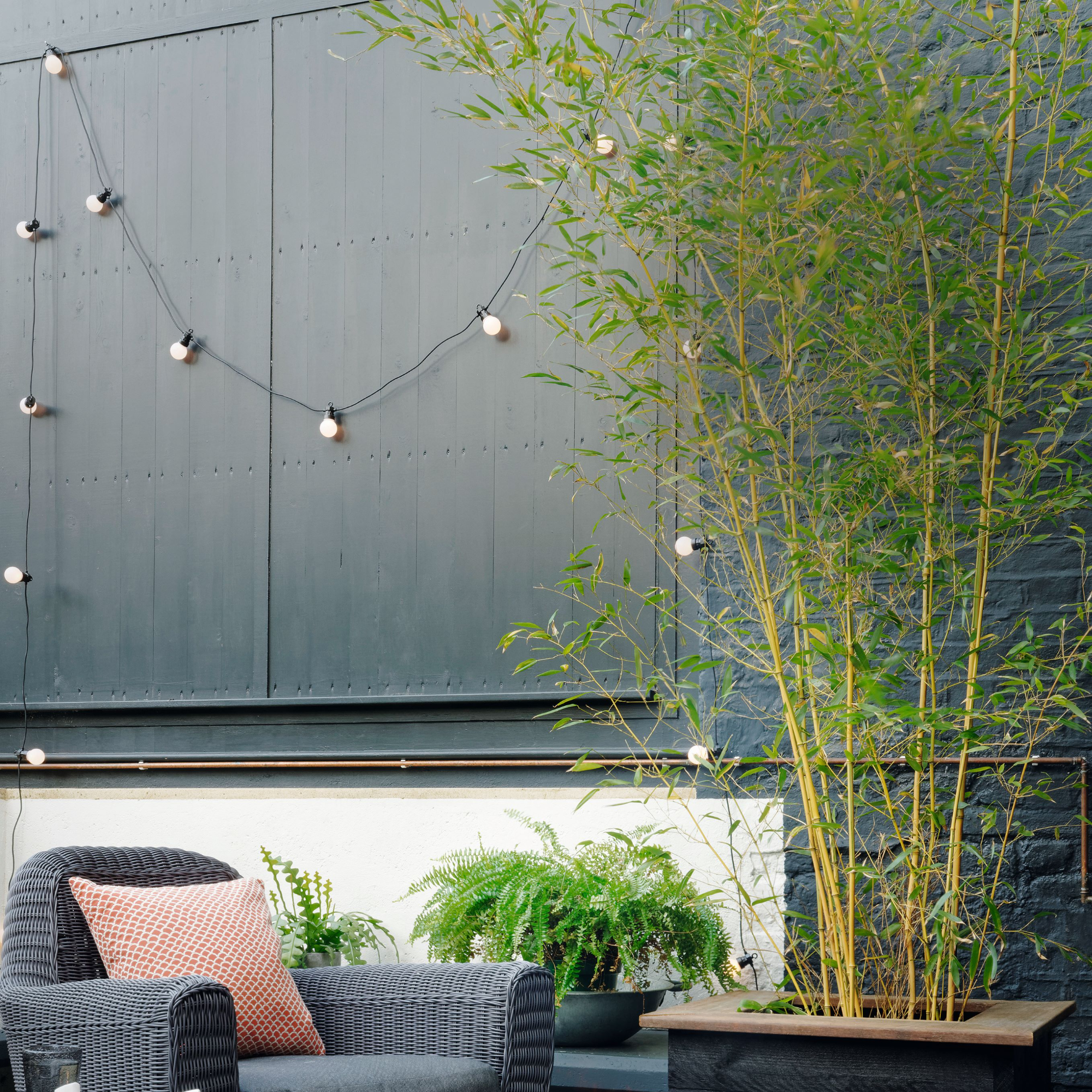
2. Too little or too much sunlight
Chances are, you likely associate bamboo with sunnier climates because the reality is that this is where this plant thrives best. However, this isn't to say that you can't employ bamboo as a small garden screening idea in the UK, you just need to think about placement.
'If your plant isn't getting enough sunlight, then chances are it will start to yellow. To fix this, make sure your bamboo is in a sunnier location,' urges John. If you have a south-facing garden, then you're already one step ahead.
However, you must keep it out of direct sunlight for long periods because (as contradictory as it sounds) too much sunlight can also cause the leaves to yellow and even burn. A sunny spot with indirect light is the ideal compromise.
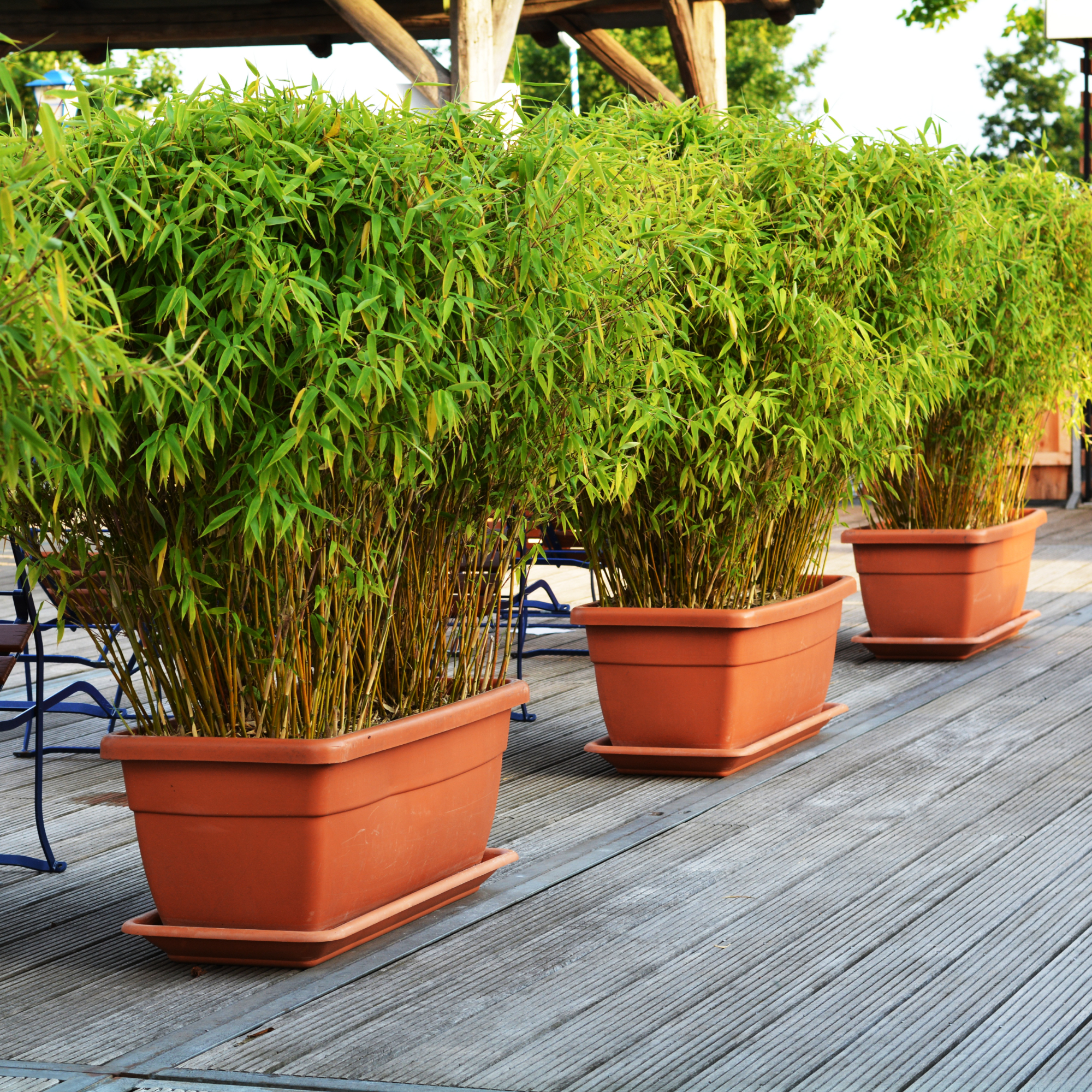
3. Low temperatures
Following from the last point, one of the reasons why your bamboo is turning yellow could also be because of low, indoor temperatures when getting them started inside. This could be a problem if you've gone down the route of growing bamboo indoors as part of a container garden idea, for example.
'You should consider making the room the plant is in warmer or placing it near a heater,' advises Petar. 'This plant thrives best at consistent temperatures of around 15 to 32°C.'
Additionally, it's best to keep your bamboo away from windows or air conditioners so it doesn't get hit by drafts which can stress it.
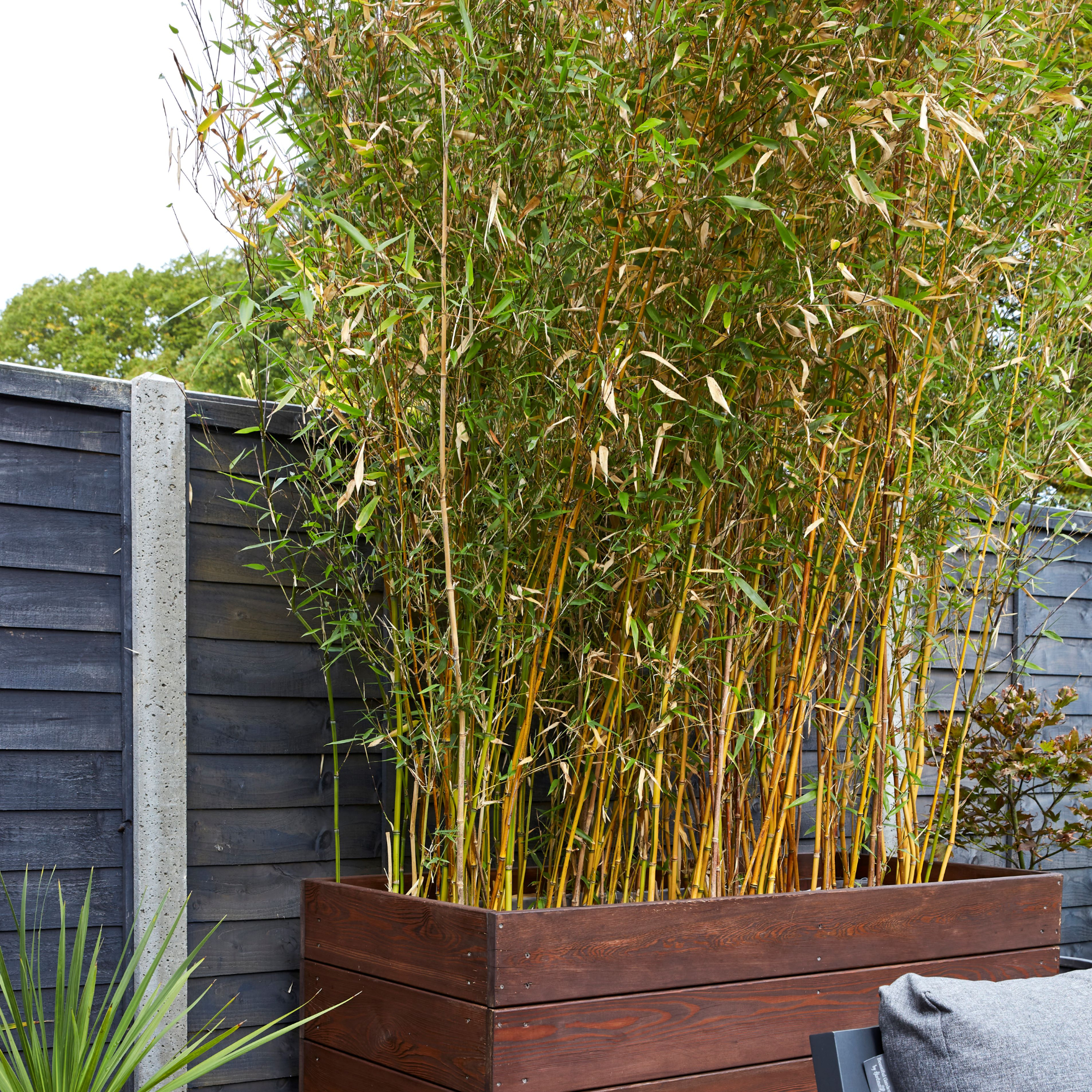
4. Pest infestation
Unfortunately, your bamboo turning yellow may not even be a result of your own plant maintenance but rather pests who have made their home on your bamboo.
'If you observe the yellow of your bamboo is patchy and in spots, it's likely because of a pest infestation,' explains Petar. 'In this case, wash the affected areas with a pesticidal soap and warm water and then you can treat the plant with a bug spray or neem oil. This treatment works both for indoor and outdoor bamboo plants.'
Other natural remedies include using ladybirds to control aphids and other pests that may be drawn to your bamboo plant.

5. Nutrient deficiencies
As with any plants, they are also susceptible to nutrient deficiency.
'Yellowing leaves often indicate that the bamboo is getting a lack of nutrients. In order to fix this, you should fertilise your bamboo with a special bamboo fertiliser. This will ensure your bamboo can get everything it needs,' explains John.
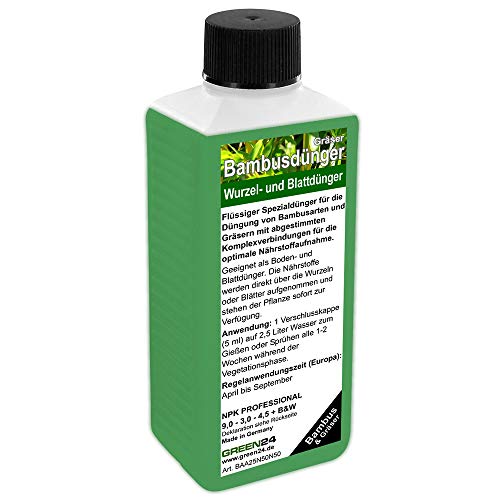
This fertiliser promotes healthy and bright green leaves, stable branches, and balanced rooting for your bamboo plants.
6. It's grown too large for its pot
Alternatively, another reason why your bamboo is turning yellow is because it has grown too large for its pot. Eventually, the bamboo plant's roots will start to overcrowd and thus, start turning yellow.
'In this case, you’ll need to repot it into a larger container because there won’t be enough soil for it to get nutrients from. This will be necessary in particular if you notice a root coming out of one of the drainage holes,' explains Petar.
FAQs
Why has my bamboo got yellow leaves?
As we mentioned above, there are several reasons why your bamboo is starting to yellow. This can be anything from watering practices, climate, and a misstep in ensuring your bamboo has sufficient nutrients to thrive.
However, your bamboo might also have yellow leaves because it is simply ageing. 'You'll know that this is the case if there are just a few yellow leaves. With such leaves, you can simply cut them off and new ones will grow and replace them,' explains Petar Ivanov at Fantastic Gardeners. 'Don't leave them on until they've turned brown or black because they can spread the decay to other parts of the plant.'
'However, when there are more than just a few yellow leaves, it very likely is caused by something else than ageing.'
Now you know some reasons why your bamboo is turning yellow, you can hopefully find adequate ways to remedy it to ensure your plant continues to thrive throughout the upcoming seasons.
Get the Ideal Home Newsletter
Sign up to our newsletter for style and decor inspiration, house makeovers, project advice and more.

Jullia was Ideal Home’s Junior Writer from 2022-2024 and the Ideal Home Certified Expert in Training on Vacuums having spent over 60 hours testing different models. She’s always loved all things homes and interiors, graduating with a bachelor’s degree in Architectural Studies from the University of Nottingham where her love for writing blossomed following her internship at ArchDaily. Now focused on home tech and cleaning, Jullia works on writing features and explainers to help people make the most of their home appliance investments, putting the newest launches through their paces. When she isn’t writing, she loves exploring the city, coffee shop hopping, and losing hours to a cosy game or book.
-
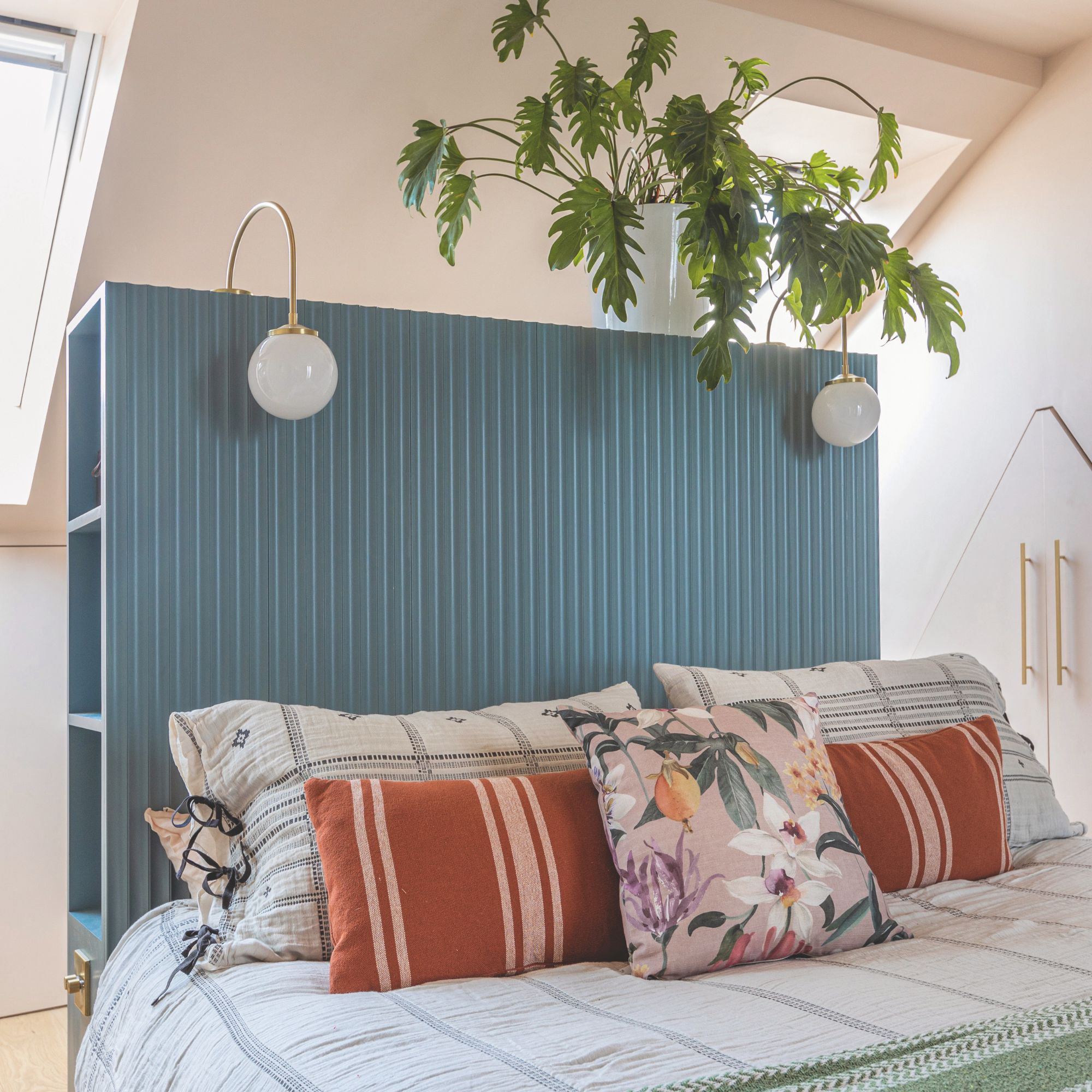 5 signs you’ve taken decluttering too far — and how you can pull yourself back, according to organisation experts
5 signs you’ve taken decluttering too far — and how you can pull yourself back, according to organisation expertsYou might have to start resisting the urge to purge
By Lauren Bradbury
-
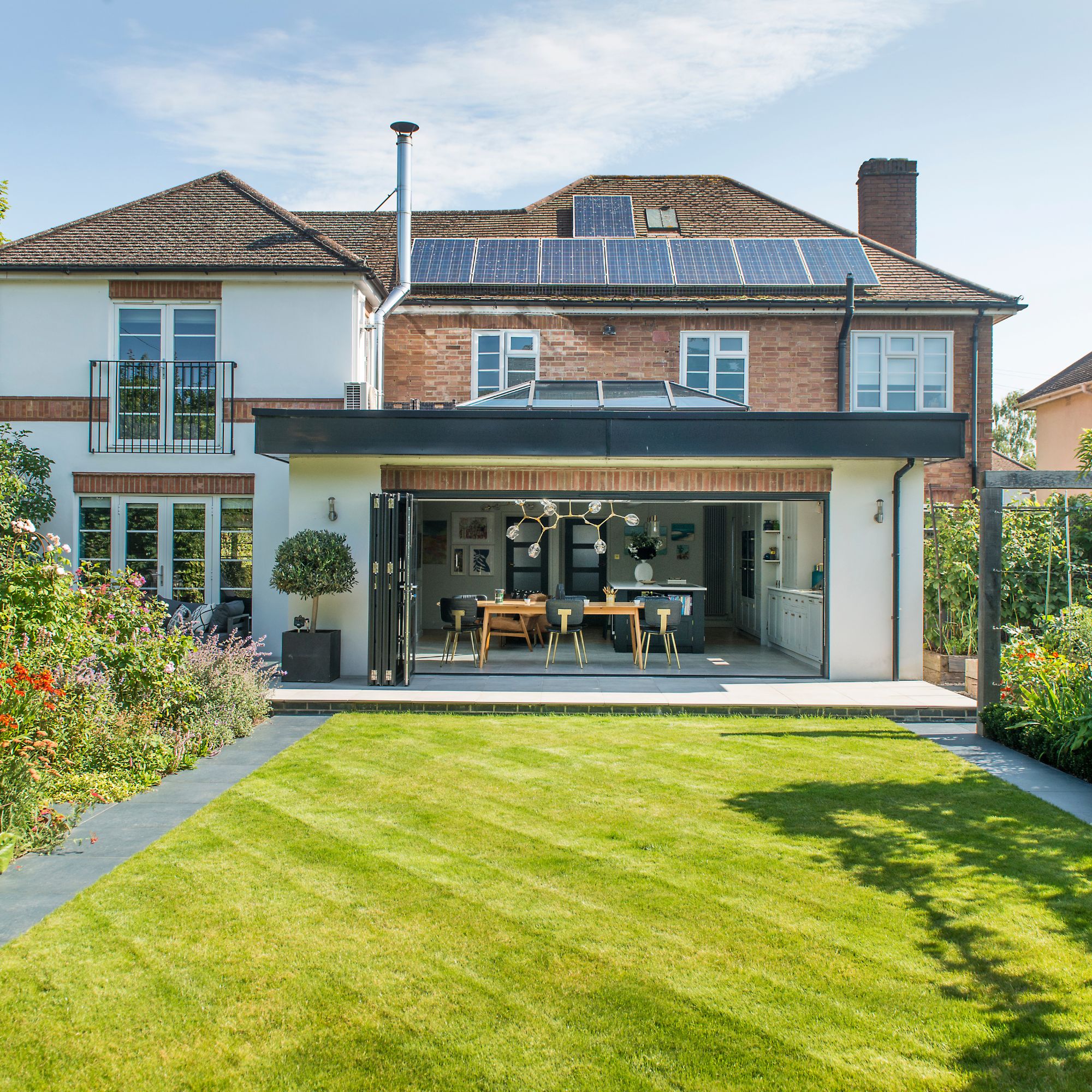 What is the Party Wall Act 3m rule and is it something you should be worried about? This is what the experts say
What is the Party Wall Act 3m rule and is it something you should be worried about? This is what the experts sayDon't get caught off-guard by the Party Wall Act 3m rule — our expert guide is a must-read
By Natasha Brinsmead
-
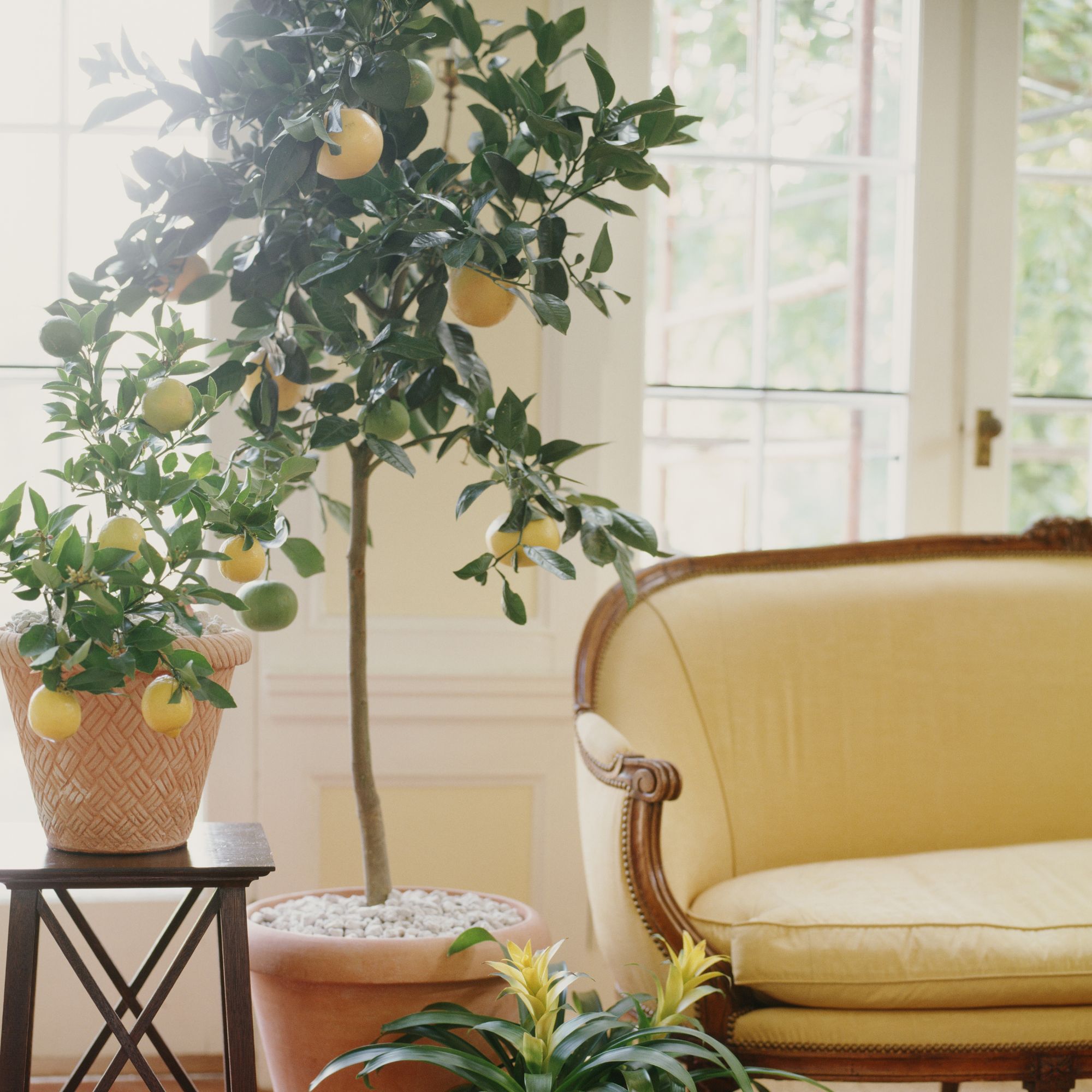 Shoppers can’t get enough of The Range’s lemon tree, but I’ve found an even cheaper bestseller at B&Q - it’s perfect for a Mediterranean look
Shoppers can’t get enough of The Range’s lemon tree, but I’ve found an even cheaper bestseller at B&Q - it’s perfect for a Mediterranean lookWelcome the summer with this glorious fruit tree
By Kezia Reynolds